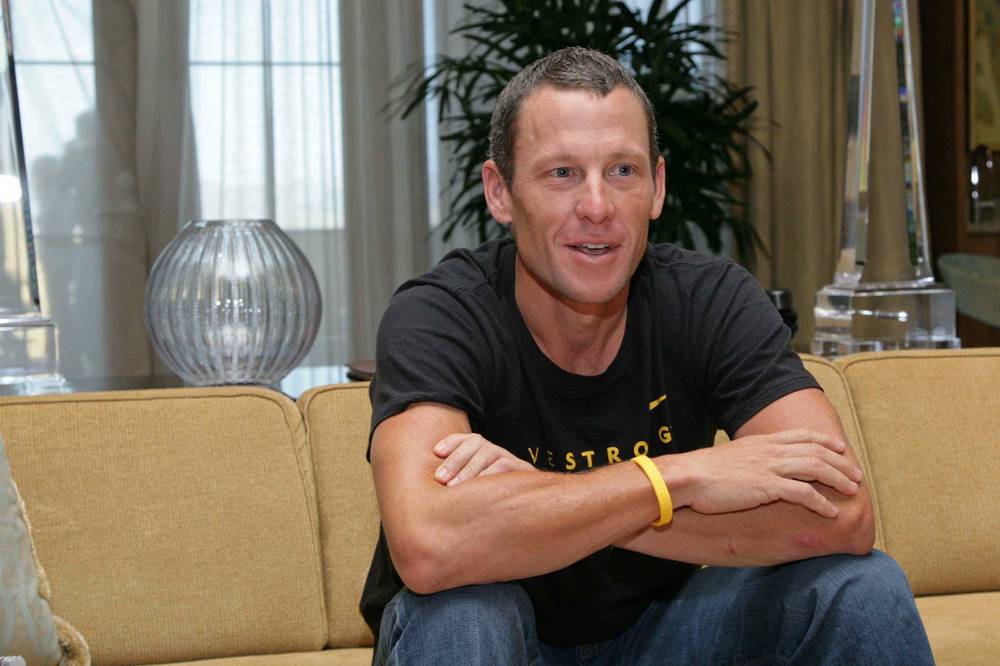Which is more inspiring? Overcoming cancer to win the Tour de France, or overcoming prolonged exposure to Matthew McConaughey to accomplish the same feat? The obvious answer shows just how hard a task incurable overachiever Lance Armstrong has set for himself. Even if he’s somehow wearing the leader’s yellow jersey when the world’s toughest bicycle race concludes in Paris on July 26, it will only be the second-greatest comeback he ever engineered.
Still, that’s more than enough to captivate us: In an era supposedly characterized by the frantic pursuit of novelty, we always make room in our hearts for a comeback. Any band that ever had a hit single over the last 40 years or so eventually regroups to fill state fairs with familiar melodies. On TV, shows like Dancing With the Stars and I’m a Celebrity … Get Me Out of Here recycle well-worn B-listers with a fervor that even the shows on Discovery’s Planet Green channel can’t match. Earlier this year, Friday the 13th got a complete remake after spawning more than a dozen sequels. Next year, A Nightmare on Elm Street will get the same treatment, only more so—the filmmakers resuscitating that cinematic corpse are planning a trilogy.
More
- From the Archives
- Lance Armstrong plans another bike win after four-year break (9/29/08)
- Beyond the Weekly
- Lance Armstrong
- Livestrong Foundation
- Lance Armstrong on Twitter
What’s the appeal? We love the famous; we love underdogs; anyone engaged in a comeback is typically both. Armstrong bolsters this winning formula with the fact that he’s even more famous now than he was when he retired from racing in 2005: Four years of global altruism on par with Bono and Al Gore, combined with a dating pedigree of Clooney-esque caliber, have turned him into a mainstream superstar, a comic-book superhero come to life. Not even the faintest whiff of tragedy, desperation or squandered talent taints his effort to reclaim past glories. He went out at the top of his game; he led an active, productive, glamorous life in his off years; and now he’s back, without ever having had to resort to heartfelt consultations with Dr. Drew Pinsky to right his ship.
On the one hand, this makes him less dramatically interesting than the hard cases who hit rock bottom before redeeming themselves with an unexpected box-office blockbuster or an Oscar-nominated performance. On the other hand, how long does anyone really want to look at Mickey Rourke’s face? It’s just a little too tragic for these times, when we’ve all got more than our own share of miseries to confront.

In contrast, there’s Armstrong, who seems engineered on an osteopathic level to exude hope, leadership, fortitude—his cheekbones alone are more inspirational than a dozen screaming cheerleaders. With his critics insisting that he’s doping even as his urine attracts more scrutiny than Sarah Palin, drama will always attach itself to him. But ultimately, his comeback is a remarkably upbeat and uncomplicated one. He’s not doing it to overcome demons. He’s not doing it because he needs to pay creditors. He’s not doing it to remind us of his rightful place in history. He’s doing it because he wants to draw more attention to his efforts to fight cancer. He’s doing it because it gives him something interesting to tweet about and because it’s incredibly exhilarating to descend on twisting mountain roads at 50 miles per hour with no windshield coming between you and all the scenery. He’s doing it because it’s fun. Which, it turns out, makes his comeback just the kind of comeback America needs right now. It’s noble but escapist, with no dark undertones. In the wake of Michael Jackson’s death, millions are grieving for the King of Pop, and also for places in their own lives gone now but still accessible through his music. Like a hit single, a triumphant comeback is a form of time travel: If Armstrong wins, then it’s 1999 again, the year of his first Tour victory, and really, except for anyone age 10 or under, who wouldn’t want to revisit that annus mirabilis, when the Dow Jones was topping 10,000 for the first time in history, Kozmo.com would deliver junk food and videos to your door for free, and the greatest threats to national security were a badly written computer program known as the Y2K bug, and Marilyn Manson?
And if Armstrong doesn’t win, well, no public-memorial ticket giveaways will be necessary. He’ll go back to being a millionaire philanthropist who can still ride his bike faster than any other 37-year-old guy on the planet. We’ll go back to largely ignoring the Versus channel. Life will go on.


Previous Discussion: